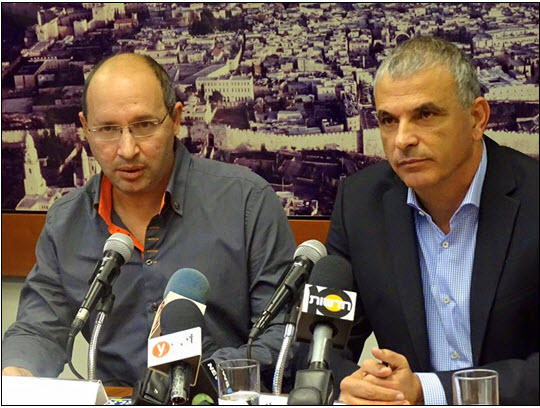The Histadrut and the the Finance Ministry reached a last minute understanding that prevented the general strike which was due to start at 6:00 am this morning, Wednesday December 23. According to the agreement, public sector employees will receive a total pay increase of 7.5% over 3.5 years and a grant of NIS 2,000. The agreement will benefit the workers with lower salaries, who received an additional increase. Chairman Avi Nissenkorn Nissenkorn commented: “Today we made history.”
The parties have agreed that 450 thousand public sector employees will receive a total pay increase of 7.5% and a one-time grant of NIS 2,000, and for the first time agreed to a salary supplement will be distributed differentially to help more low income-earners. It was also agreed to continue the discussions and to report on developments in the negotiations until January 3, 2016.
The signed agreement covers a five-year period, from January 2013 to December 2017. The agreement provides that public sector workers will receive a total pay increase of 7.5% spread over 3.5 years. That means a budget increase of NIS 7.5 billion, as opposed to NIS 11 billion originally demanded by the Histradrut.
According to the agreements, salary increments are to be distributed differentially so that 50% of the increase will be given in shekels while the second 50% will be given proportionately. In other words, the wage increases introduced with this agreement will reduce the gap between low and high wage-earners in the public sector. In addition, employees will receive a one-time bonus payment in the amount of NIS 2,000 to be paid in two stages – NIS 1,000 in January 2016 and another NIS 1,000 in January 2017.
Employees earning low wages will receive an additional increase in salary above the 7.5% provided to all workers. The parties have also agreed to the introduction of an inter-ministerial tender on recruitment rather than internal tender which will contribute to reducing the bureaucracy and subsequent time period for employee recruitment, with the aim of improving the public sector.



